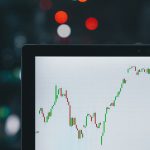As the second half of 2024 unfolds, Africa’s venture investment landscape is poised for a dynamic shift, influenced by a range of economic and geopolitical factors.
A closer examination of these trends reveals strategic considerations that could shape investment decisions and economic policies across the continent.
1. Stabilization of the Nigerian Naira: A pivotal development is the expected stabilization of the Nigerian Naira, forecasted to strengthen to N1,250/USD by the end of 2024.
This optimism is anchored in the anticipated commencement of operations at the Dangote Refinery, which aims to reduce Nigeria’s reliance on imported fuel, thereby diminishing the demand for USD.
Coupled with a potentially more hawkish policy stance from the Central Bank of Nigeria and favorable global economic shifts, such as expected monetary easing in the US, the Naira’s recovery could bolster investor confidence and stabilize other sub-Saharan African currencies.
2. Surge in Renewable Energy Investments: The renewable energy sector in Africa is set to experience significant growth, highlighted by the Africa Renewables Investment Summit scheduled for late September in Cape Town.
This event, along with Development Reimagined’s investment tour across Zambia and Mozambique, is expected to attract substantial foreign investment. These initiatives reflect a heightened focus on sustainable energy solutions, crucial for the continent’s long-term economic resilience and environmental sustainability.
3. Impact of Upcoming Elections:Africa’s political landscape will be heavily influenced by multiple elections scheduled in H2 2024, including key presidential and legislative battles in Mozambique, Chad, Tunisia, and Ghana. Political stability is a critical factor for attracting foreign investment; thus, these elections could significantly impact various economic sectors, including agriculture, energy, and technology.
Investors and policymakers alike will need to monitor these developments closely to mitigate risks and harness opportunities that may arise from new governance frameworks.
4. Potential Rate Cuts in South Africa:
Economic activity in South Africa may receive a boost from anticipated rate cuts. A Reuters poll suggests that the South African Reserve Bank might reduce the repo rate by 25 basis points in September, contingent on favorable inflation and currency stability. This potential monetary policy adjustment could lower borrowing costs, thereby stimulating both consumer spending and business investment.
However, the outcome will also depend on external factors, such as the US Federal Reserve’s decisions, which could influence global investment flows and economic conditions in Africa.
As Africa navigates these complex scenarios, stakeholders—from investors and entrepreneurs to policymakers—must stay agile. The region’s ability to adapt to economic shifts, leverage new opportunities in renewable energy, and maintain political stability will be crucial for sustaining growth and attracting global capital.
With careful strategic planning and a focus on sustainable development, Africa can enhance its position as an attractive destination for both regional and international investors.
Source( MAGNiTT H1 Report)
 We just launched our WhatsApp channel. Want to get the latest news from the Tech in Africa?
We just launched our WhatsApp channel. Want to get the latest news from the Tech in Africa?


